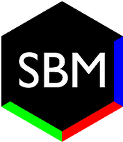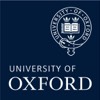MODULES
Students undertake a series of intensive training modules during their first year. We have taken a new approach to teaching, developing a comprehensive course which enables students to rapidly obtain an advanced level of modern organic chemistry and a core knowledge and conceptual understanding of biology.
COURSE MATERIAL
In total, 23 new courses were developed for the SBM CDT by academics from Oxford Chemistry and our industrial partners, comprising over 5,500 slides. The SBM CDT taught course material provides a useful resource for graduate students and the overall teaching and research community, and it is available to download for free!
Please see below more information about rights of use and attribution.
JOINT TRAINING
All courses are delivered by leading researchers, mainly academics from the Department of Chemistry. Additionally, relevant courses and workshops encompassing the science of pharmaceutical and agrochemical research are delivery by some of our industrial partners. Courses are delivered using a mixture of lectures, workshops and projects, and also include visits to manufacturing and research and development industrial sites.
ASSESSMENT
All modules involve some aspect of formal assessment, taking a wide variety of forms, including written reports, problem solving, practical write-ups, and group and individual presentations.
FOUNDATION MODULES
Expand the boxes for more information on each module and slides (where available).
 Course material developed for the EPSRC CDT in Synthesis for Biology & Medicine is licensed under a Creative Commons Attribution-NonCommercial 4.0 International Licence. Creative Commons Attribution-NonCommercial 4.0 International License.
Course material developed for the EPSRC CDT in Synthesis for Biology & Medicine is licensed under a Creative Commons Attribution-NonCommercial 4.0 International Licence. Creative Commons Attribution-NonCommercial 4.0 International License.WHAT OUR STUDENTS SAY:
I applied to the SBM course since I hoped that the lecture courses on emerging organic chemistry would give me a really good understanding of where my strengths were, and provide access to work at the very edges of the department. It's been great so far and I've really enjoyed getting to know the rest of the cohort, who I hope I will be friends with beyond these four years.
Sarah Morrow, 2014 Cohort
 "/>
"/>
